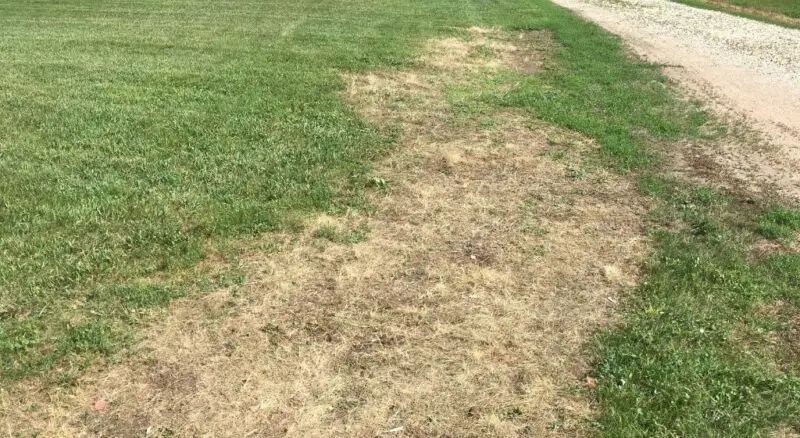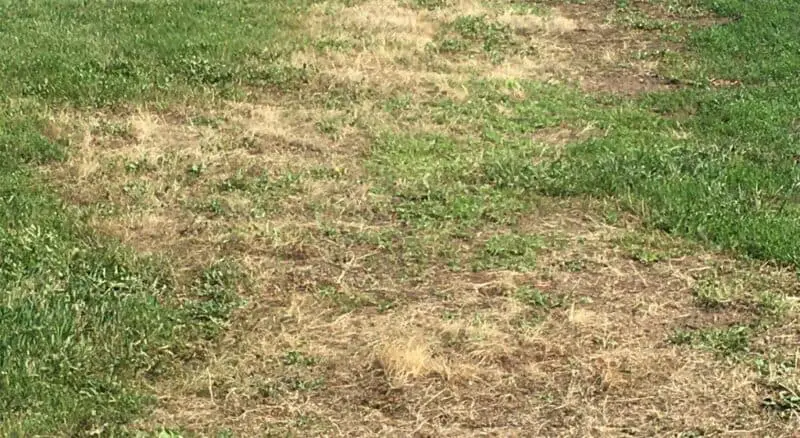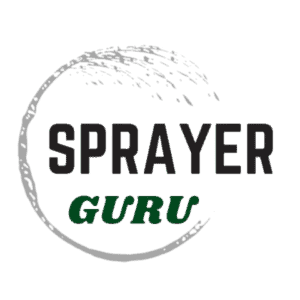Well, it finally happened. You got married, had kids, and moved from your apartment to a house in the suburbs. Life is good but now you have a lawn to deal with and weeds seem to be popping up everywhere.
If you are considering using Roundup, it’s essential to understand the effects of using Roundup and how to use it safely. In this blog post, we’ll answer some common questions about Roundup and its impact on your lawn.
What is Roundup?
Roundup is a broad-spectrum herbicide, meaning it is effective in killing many different types of plants. It is widely used in agriculture and other industries. Glyphosate is the active ingredient found in Roundup. It works by inhibiting an enzyme involved in the production of specific amino acids essential for plant growth. This makes glyphosate highly effective at controlling a wide range of weeds, basically, Roundup will kill just about any type of non-woody plant.
Effects of Roundup
Roundup is a systemic herbicide, which means it is absorbed by the leaves and surface and transported throughout the plant, including the roots. Once inside the plant, it disrupts normal functions, leading to the death of the plant. Again it is key to remember that Roundup is a non-selective herbicide, meaning it can harm or kill any plant it comes into contact with, including desirable plants like grass and flowers.
Is Roundup Safe?
While Roundup has proven effective in controlling weeds, concerns have been raised regarding its potential impact on the environment. You have likely heard the commercials on the radio about a class action lawsuit.
This is a complex issue and there is plenty of support showing possible harm from Roundup as well as evidence to suggest the threat is minimal. I have personally used Roundup, and believe that there is no real threat if used sparingly.
What Happens if You Spray Roundup on Your Yard?
When you spray Roundup on your lawn, it will kill both weeds and grasses, as it is a non-selective herbicide. Glyphosate, the active ingredient in Roundup, works by inhibiting a specific enzyme pathway necessary for plant growth, ultimately causing the plants to die.

You should not spray Roundup or other glyphosate products on your lawn unless you want to kill your grass as well as the weeds.
What should you do if you accidentally spray your grass with Roundup?
If you accidentally spray your grass with Roundup, there’s not much you can do. If you sprayed only a small isolated area, you can water it to attempt to rinse off the herbicide to try and reduce the effects. You only have about a 30-minute window to do this and even then it may not be very effective.
If you are not able to thoroughly water it within this time period you will have most if not all the grass die. If you sprayed your entire lawn you will need to reseed or re-sod it. A small patch might be able to be tilled and seeded as the surrounding grass fills in.
Can you safely use Roundup on your entire lawn?
Using Roundup on your entire lawn will kill both weeds and grass. Roundup should be used selectively to target specific weeds or problem areas. There are better alternative herbicides to use on your lawn. Selective herbicides can be used to control weeds in your yard and will not kill your grass.
One of the most common herbicides for weed control in grasses is 2-4D, but there are several different types of selective herbicides that can be used for broadleaf weed control in your lawn. You can find guidance on selecting the best one for your lawn with this herbicide buyers guide and Domyown.com.
Will grass grow back after using Roundup?
Grass can grow back after using Roundup, but it may take some time and it is likely that you will have weeds growing back instead of grass. I have accidentally sprayed Roundup on my lawn. After a few weeks, there was new green growth of small weeds in the brown patch of dead grass left behind. This is fairly typical but the amount of rainfall and soil type will affect how soon, and how fast weeds/grass will grow back.

It is unlikely that your healthy lawn will come back after spraying it with Roundup, even if it was a small area. You will need to intervene and re-install sod, or re-seed the area.
Is Roundup harmful to your lawn?
Roundup is harmful to your lawn as it will not only kill weeds but also your grass. Roundup is a non-selective herbicide, meaning it targets all types of plants. There are herbicides that are intended for use on your lawn that will not kill grass. You can find guidance on selecting a herbicide for your lawn with this herbicide buyers guide.
When should you avoid using Roundup?
You should avoid using Roundup when the weather is windy, as the spray can drift onto desirable plants and cause damage. Additionally, avoid applying Roundup after rain. Wait for the plants to dry before applying Roundup as the moisture can wash away the herbicide before it has a chance to work effectively.
You should also avoid using Roundup on any lawn or area where you do not want to eliminate everything that is growing there. Roundup will kill all the plants including grass, small woody plants, broadleaf plants, etc.
Conclusion
Roundup is an effective herbicide and it is safe when properly handled and used sparingly. It is not meant to be sprayed on lawns to control weeds. It will kill your lawn and leave you with bare soil that will eventually fill back in with weeds. If you need to control weeds in your lawn you can find many herbicides intended to be used on lawns.

